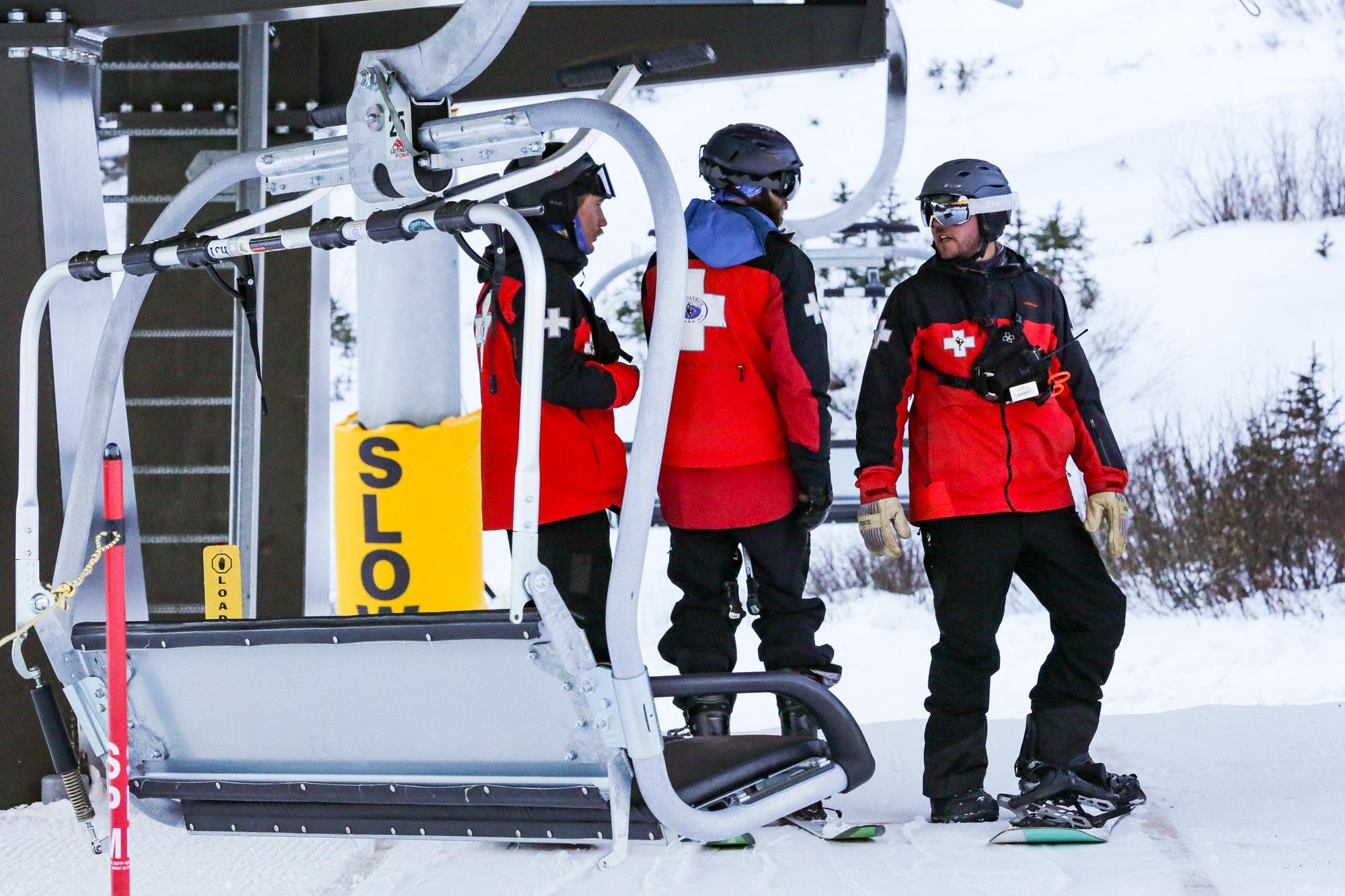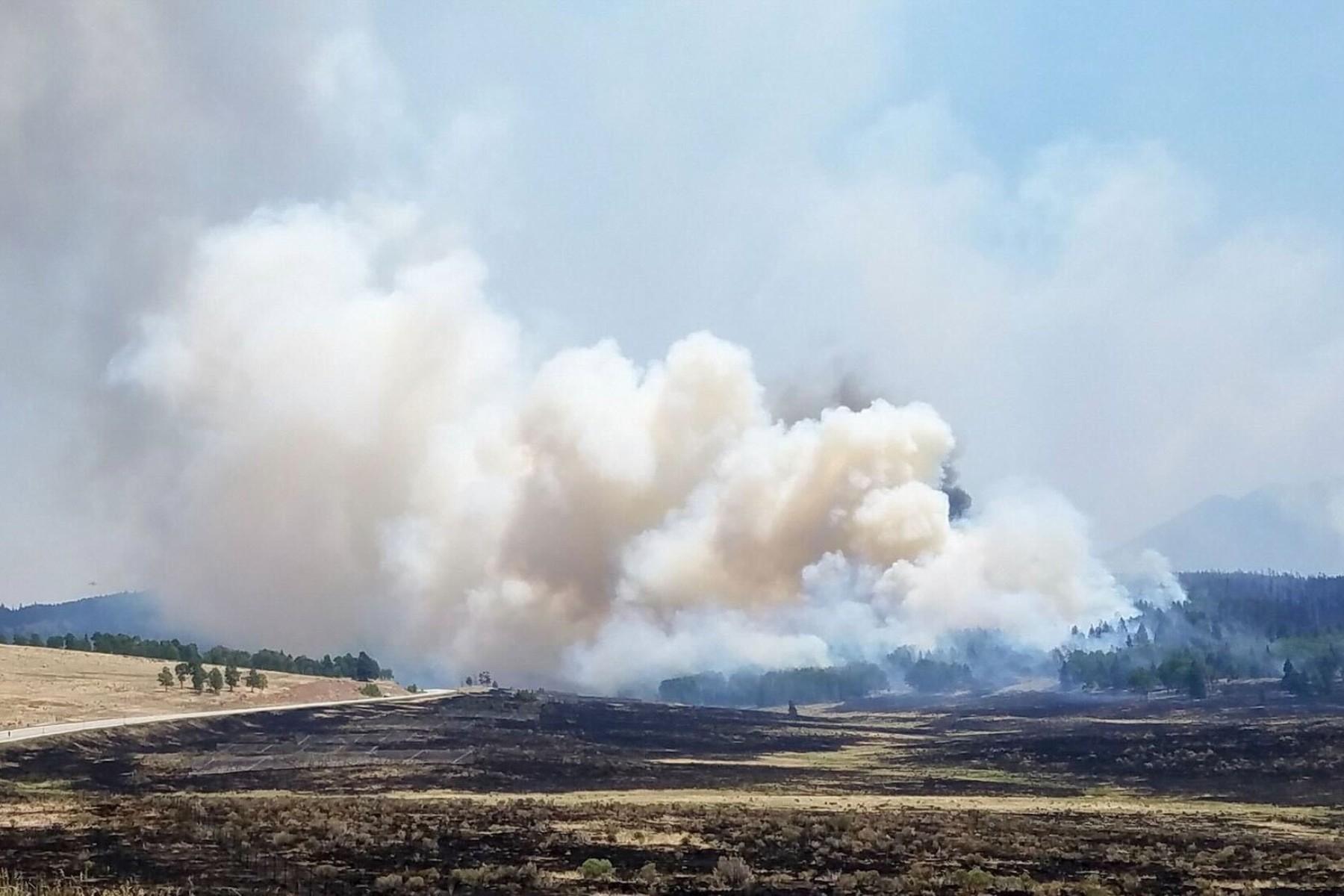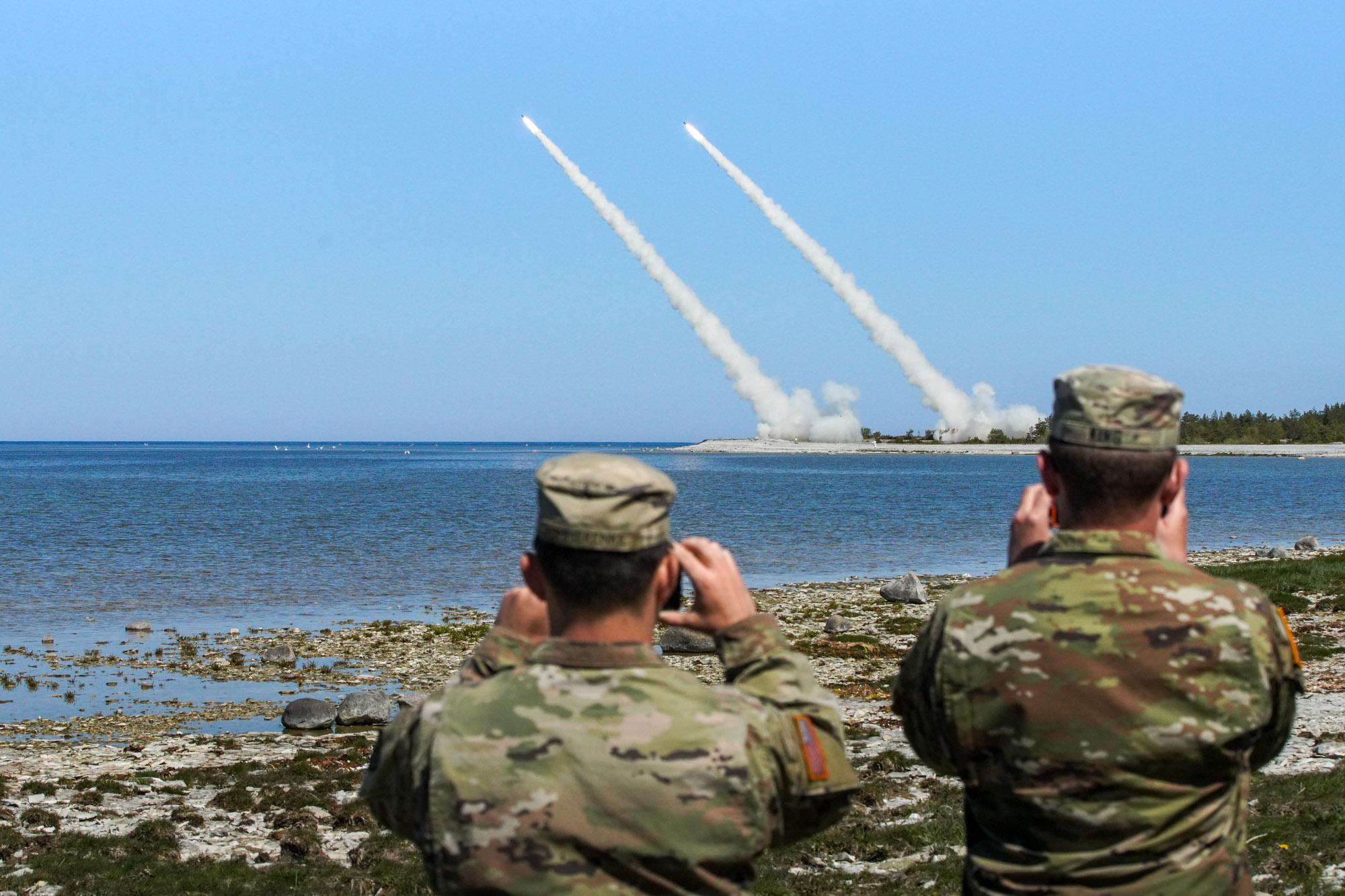
“So is it similar to Colorado?” Brigadier General Riho Ühtegi asked jokingly of the landscape of Estonia’s largest island Saaremaa. Ühtegi commands the Estonian Defense League, this small Eastern European country’s version of the National Guard.
Standing beside him, looking out on the rocky shoreline and the deep blue Baltic Sea, Brigadier General Laura Clellan, Colorado National Guard Adjutant General, answered “No” with a hearty laugh.
Clellan was here to watch the guard work in concert with the Estonian military and a regiment from Oklahoma to fire rockets from HIMARS, the High Mobility Artillery Rocket System.
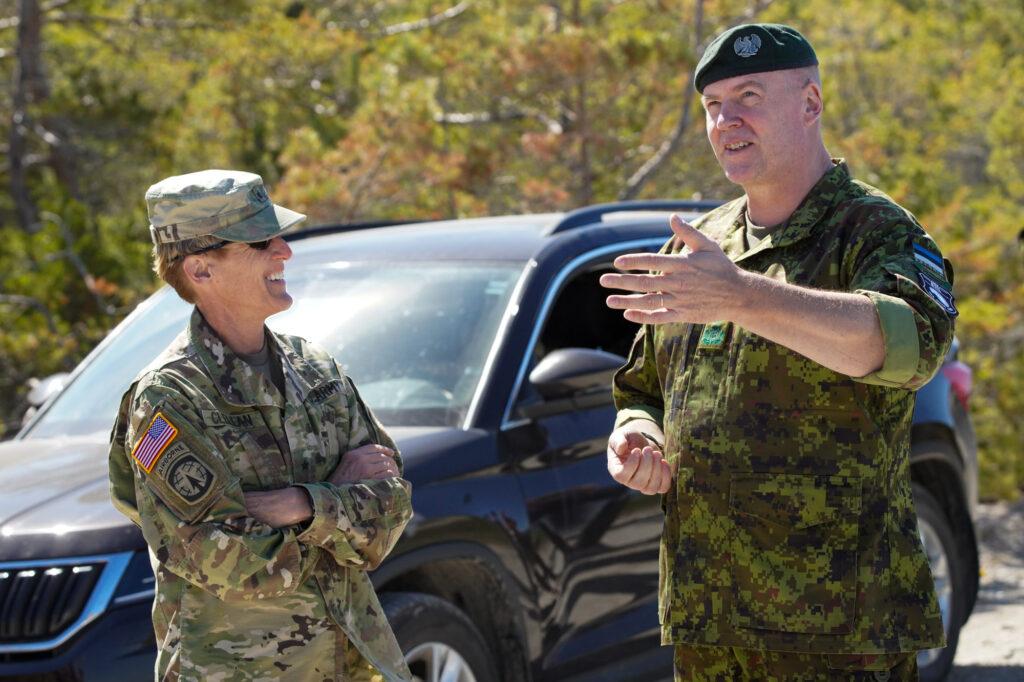
The launchers look kind of like small, lean dump trucks. But when the bed tilts up, instead of things falling out, rockets shoot off. After a bright flash, two smoke trails arc into the sky and seconds later a loud boom echoes through the air.
About 1,200 national guard members from six states — Colorado, Maryland, Illinois, Michigan, Pennsylvania and West Virginia — have spent this month participating in a large-scale multinational joint exercise called Defender Europe 22, led by the U.S. Army Europe and Africa. On the ground, Defender is actually made up of many smaller exercises, spread over nine countries in northern Europe and involving around a dozen allied or partner countries.
The live fire launch on Saaremaa dovetailed with Estonia’s own military exercise known as Siil (translation: Hedgehog), which Colorado’s National Guard is also helping with.
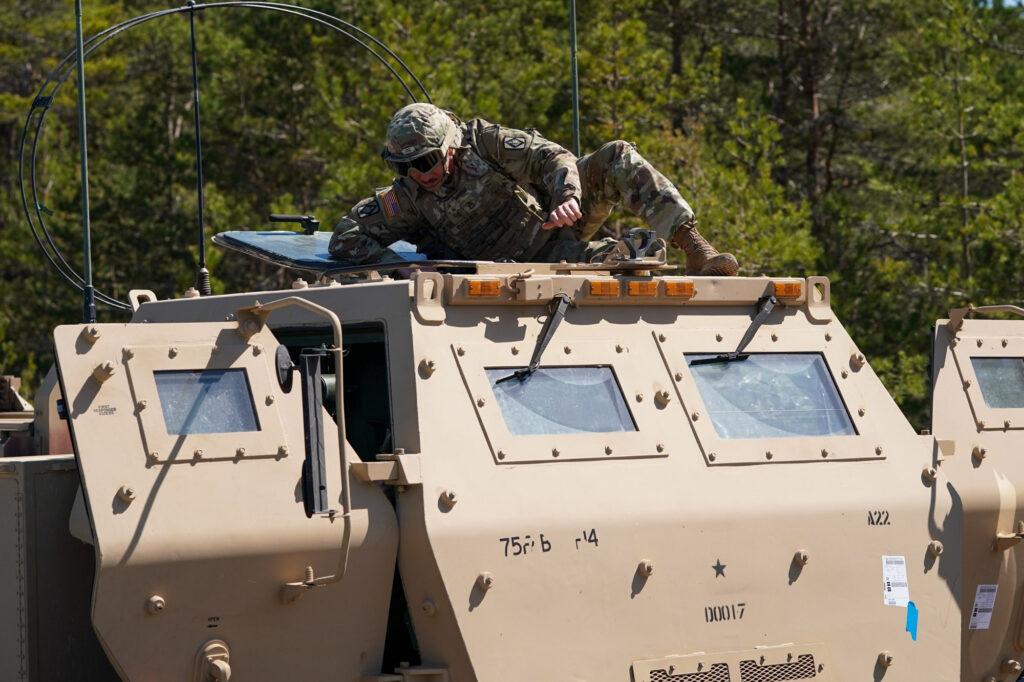
“The amount of rockets allocated to everything going on in these exercises — there are more here on this island than the rest of Europe combined,” said Col. Chris McKee, commander of the 169th field artillery brigade from the Colorado Army National Guard. He’s been planning this demonstration for months. “So this exercise wins in rockets.”
While the flash and bang of the rockets may dazzle, what’s really being tested on this island isn’t so visible — it’s how well the U.S. and Estonian systems and soldiers work together. The military calls it interoperability.
“The rockets are going to fly, we know that,” said Maj. Joe Bryant, from Monument, Colorado, the team’s planner for the Defender exercise. “What was most important today was, it originated in Estonian command (and then) came to our headquarters and it came to our launcher.”
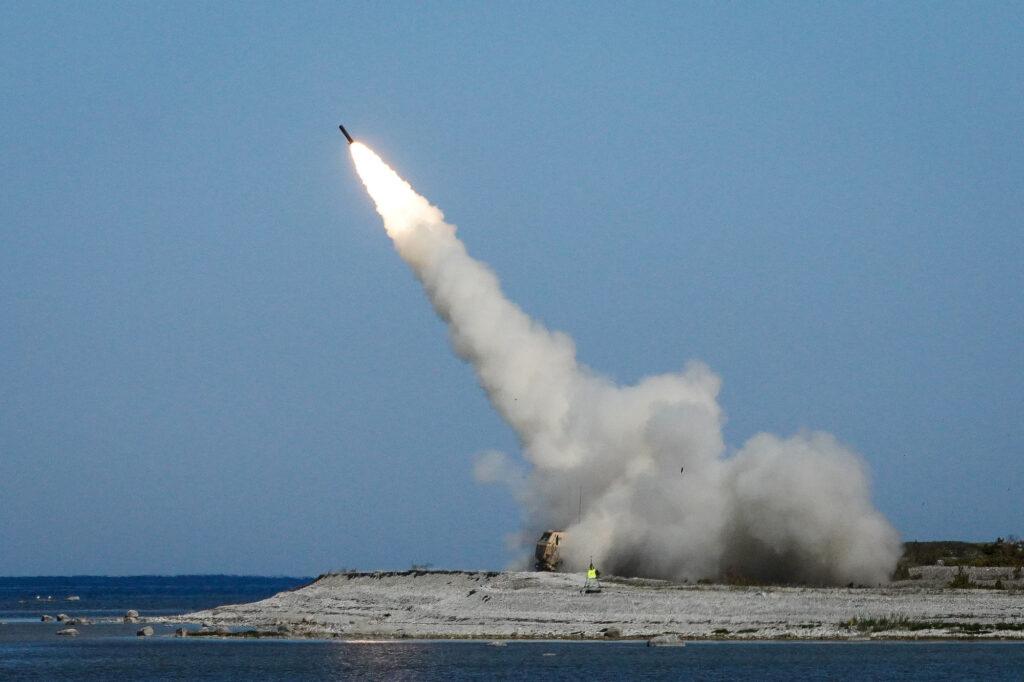
To make that work, one of the Guard’s soldiers was embedded with Estonian command, located about two hundred miles away. She was there to make sure all the different technical parts that needed to work together, did work together.
It’s also one of several cooperative drills going on on the island. U.S. Marines were there for an amphibious assault exercise last Friday. At the airport on the other side of Saaremaa, Maryland’s Air National Guard has been doing live refueling drills. Colorado’s Guard is running point for troops from several states — after this, they’ll practice backing a HIMARS off a plane in Denmark before quickly launching the rockets. Then they’ll turn their focus to exercises in Latvia and Lithuania. Those have the evocative names Summer Shield and Flaming Thunder, respectively.
In addition to testing interoperability, Defender is also a chance for the U.S. military to practice logistics — seeing how well it can move people and equipment around between the different exercises.
Colorado National Guard member Ryan King of Aurora is a student at CU Denver. He joined the guard almost two years ago, after spending time as active duty in the Army, and sees directly the value of this exercise.
“Getting to learn how to communicate better with them and perform operations together with them,” he said, “because if you try to go into that without any prior experience or information to go on, it’d be quite a mess.”
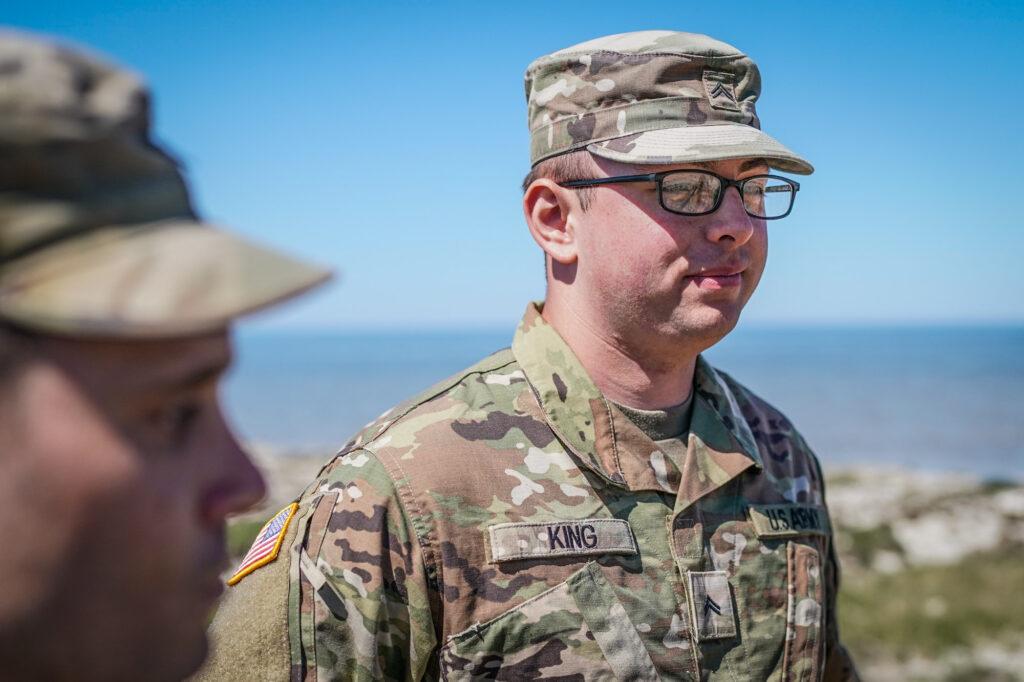
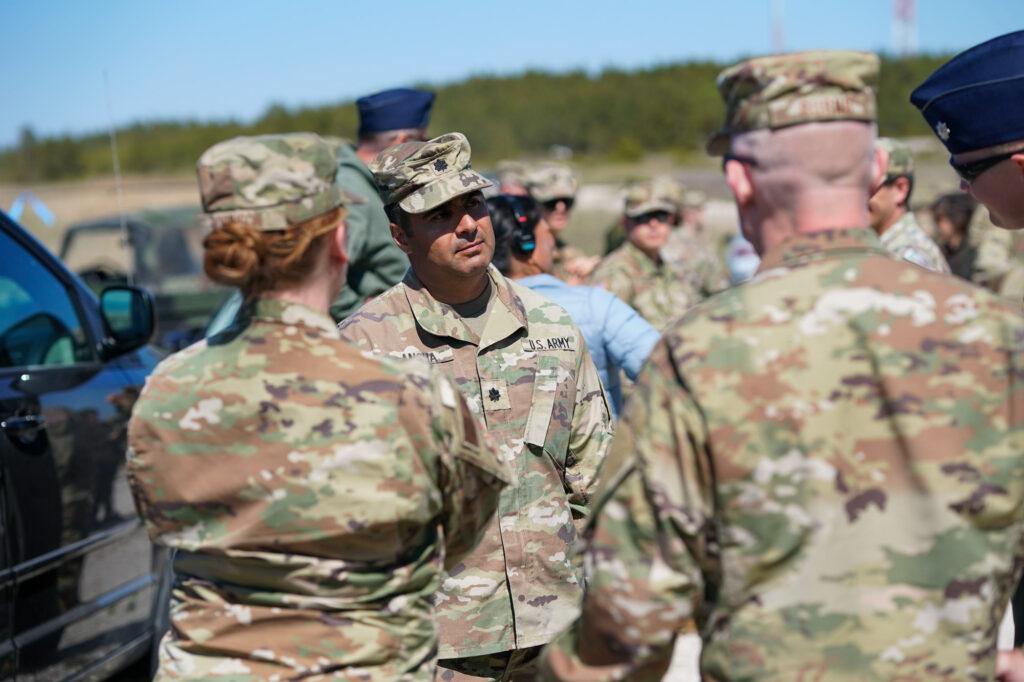
For the Estonians, exercises like this have an added meaning: It’s a sign of reassurance, a major display of public support from its fellow NATO states. “It also gives some understanding for the population of people, that we are really protected and our allies are coming and support us if we have any kind of situation,” Ühtegi explained.
The bear in the room — the situation that no one here wants to mention — is, of course, Russia’s invasion of Ukraine, which is unfolding 800 miles to the south. The U.S. and European countries want to highlight their solidarity without poking the Russian bear.
Instead everyone stresses that Defender isn’t a new thing — these exercises have been going on for years.
“We always felt support from your side, so we want to be also (a) good alliance for you,” said Ühtegi.
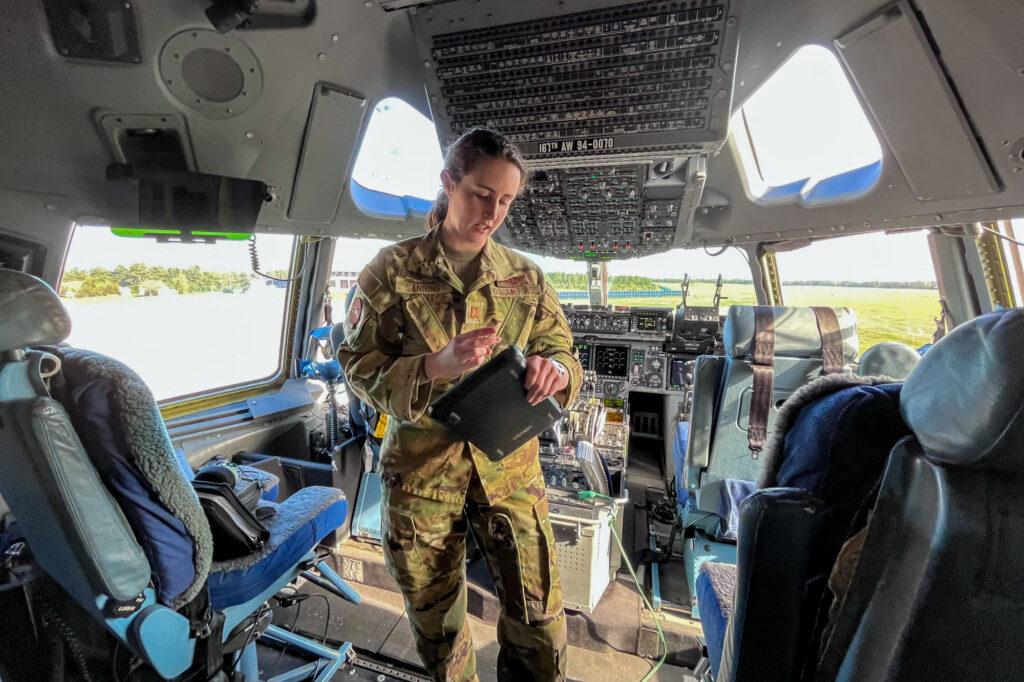
The Guards’ links to the region
McKee said the state partnership program, where a U.S. state is paired with a foreign partner, is a big part of the reason they are all here in northern Europe. Colorado’s state partner in Europe is Slovenia.
“We have two cannon units in Michigan and Pennsylvania that are both state partnership partners with Latvia and Lithuania. So, they have existing training relationships with those two countries,” he said. “This allowed us to get up into the Baltics. It's been a great experience.”
The Maryland Air National Guard has a particularly personal tie this year for the exercises. One of their new guard members, Airman Sven Wichman, is Estonian American. After doing his mandatory one year service in the Estonian Army, he returned home to the U.S.
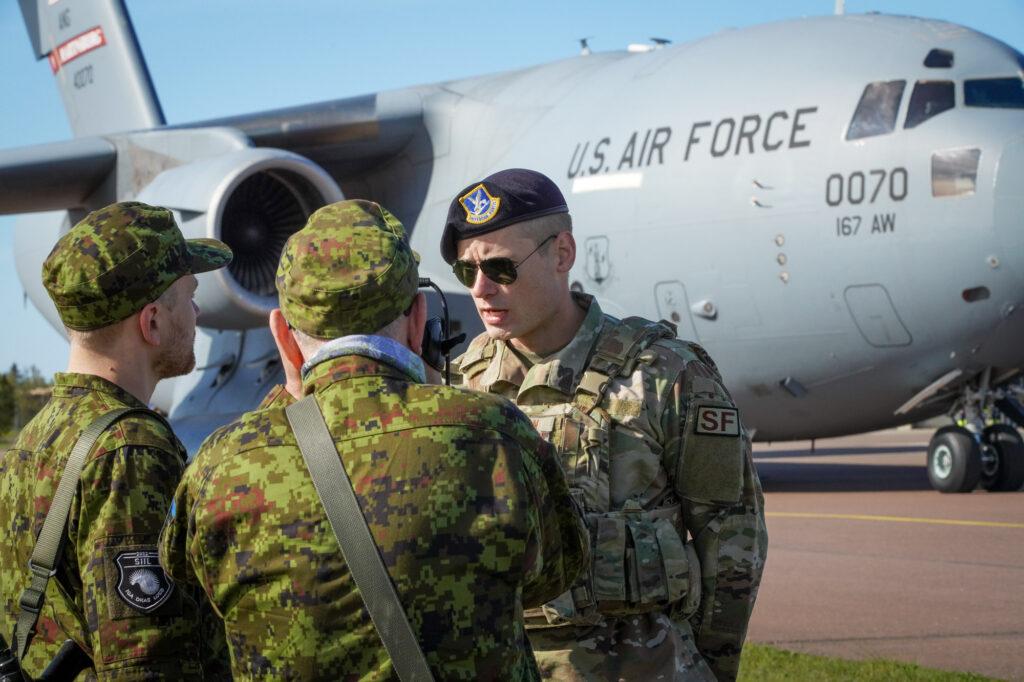
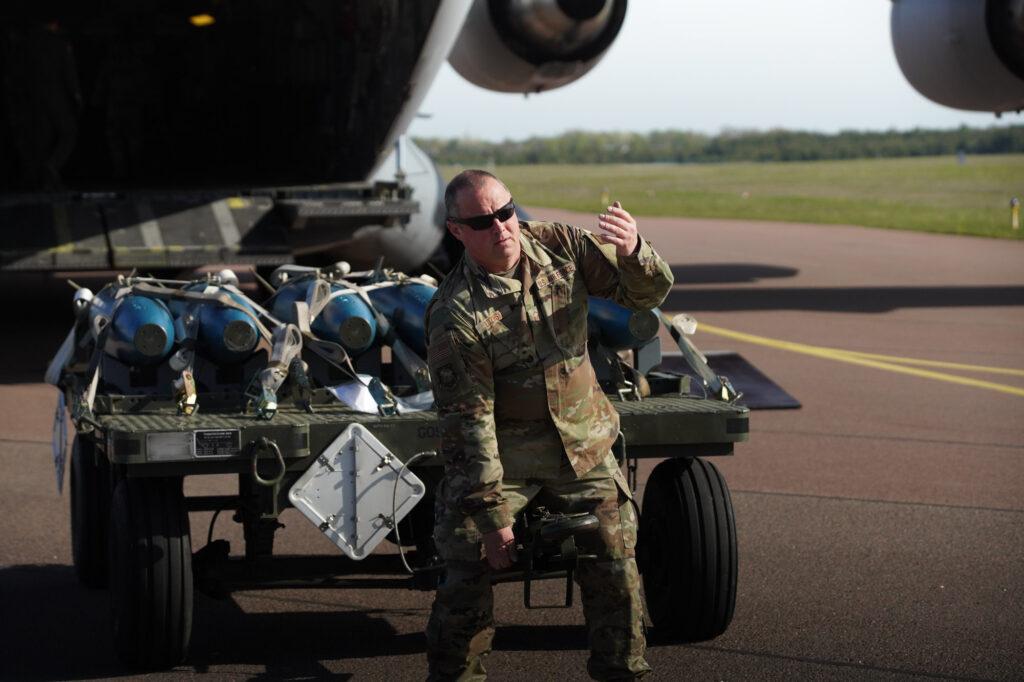
“I liked the comradery and the experience there. And so I thought, what better way to serve my country here in America than to join the Air National Guard and be of use in the bilateral connection that Estonia and Maryland share.”
Unlike active duty units which rotate regularly, National Guard members tend to stay in the same units for several years, allowing them to really develop relationships with their country partners. While the Colorado team was relatively new to the region, many members from Maryland, Michigan and Pennsylvania have been to Baltics multiple times and have developed friendships with their Baltic counterparts.
After the last rocket was fired on Saaremaa on Monday afternoon, Colorado’s McKee was pleased — Everything went smoothly. He even joked that no birds were hurt during the live fire demonstration. (I can attest to that. The boom of the rockets failed to scare off the nearby seagulls. They continued to float in the water, watching just like the crowd on shore.)
McKee said what these exercises are ultimately about is learning things you just can’t back home.
“I believe we learn more from the Estonians and from our partners, than they learn from us … we often get trapped in how we do things and stop looking at it.”
Colorado’s Guard will have a few more days to keep learning before Defender wraps up for the year.

